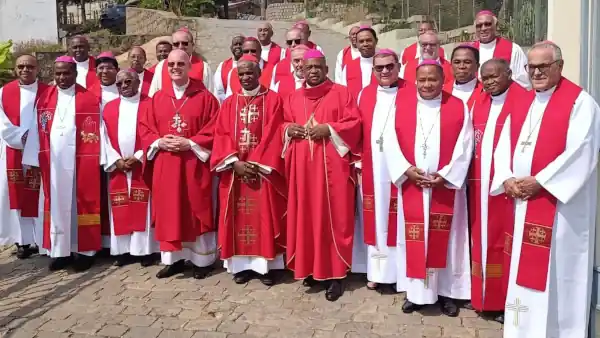June 20 - Silvère, who was the 58th pope from 536 to 537, was the legitimate son of Pope Hormisdas, born before his father had been ordained, a unique case in the history of the Papacy. It was probably ordained on June 1 or 8, 536.
He opposed the rehabilitation of Anthime I, Patriarch of Constantinople, who was convinced of monophysite heresy and who was deposed by Agapet I, and thus attracted the hatred of Empress Theodora. Theodora then did everything possible to have the Vigil appointed pope. During the reign of Silvère, it was alleged that he owed his accession to the throne of Saint Peter to Theodat, king of the Ostrogoths.
On December 9, 536, the Byzantine general Belisarius entered Rome with the approval of Pope Silvère. Theodat's successor, Vitiges gathered an army and laid siege to Rome for several months, subjecting the city to deprivation and famine. Pope Silvire was accused of writing to Vitiges, offering to betray the city.
He was probably deposed by Bélisaire in March 537, on charges of felony correspondence with the Goths, and was degraded to the rank of simple monk. He was thus the first pope forced to abdicate. He went to Constantinople, and Justinian, agreeing with him, sent him back to Rome, but the Vigil, apocrisiary in Constantinople, was apparently able to banish his rival to the prison island of Pandataria, where no more was heard of him.
However, according to the Liber Pontificalis, Pope Silvère was not exiled to Ventotene (Pandataria), but rather to Ponza, where he died a few months later, on 20 June 537.
According to a legend from the Ponza Islands, fishermen were caught in a storm off the coast of Palmarola, and they begged for help from Pope Silvère. An apparition of this one brought them to Palmarola, where they landed safely. This miracle made him a saint. The first mention of his name in the list of saints dates back to the 11th century.








